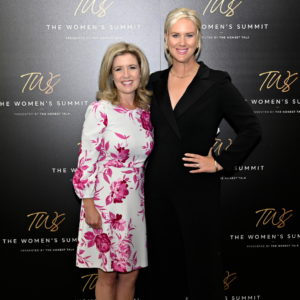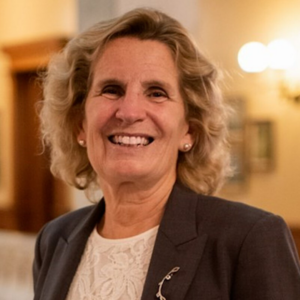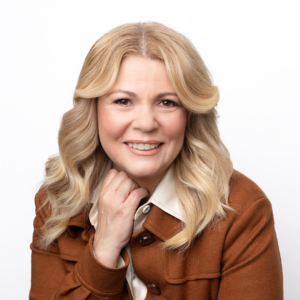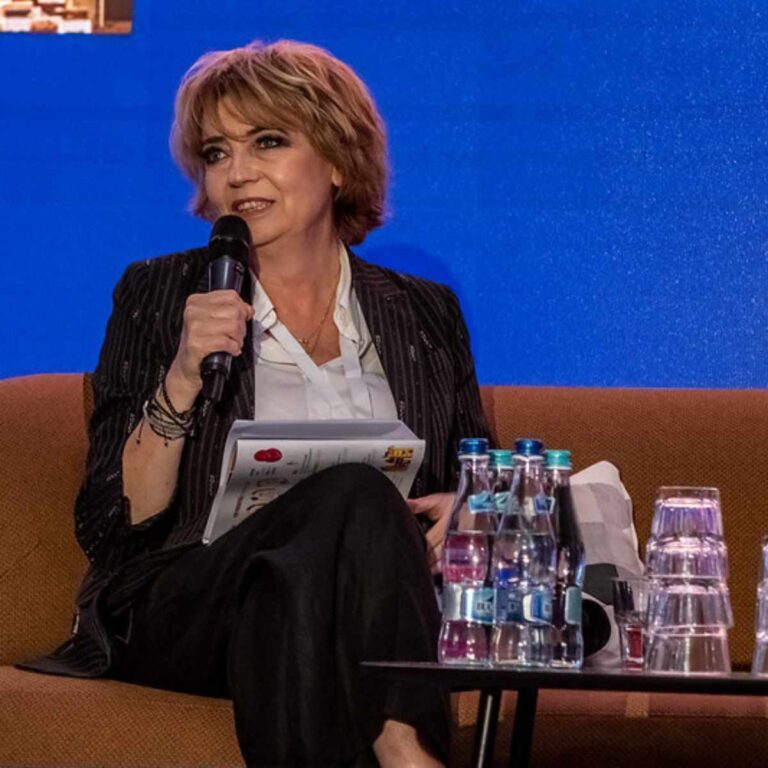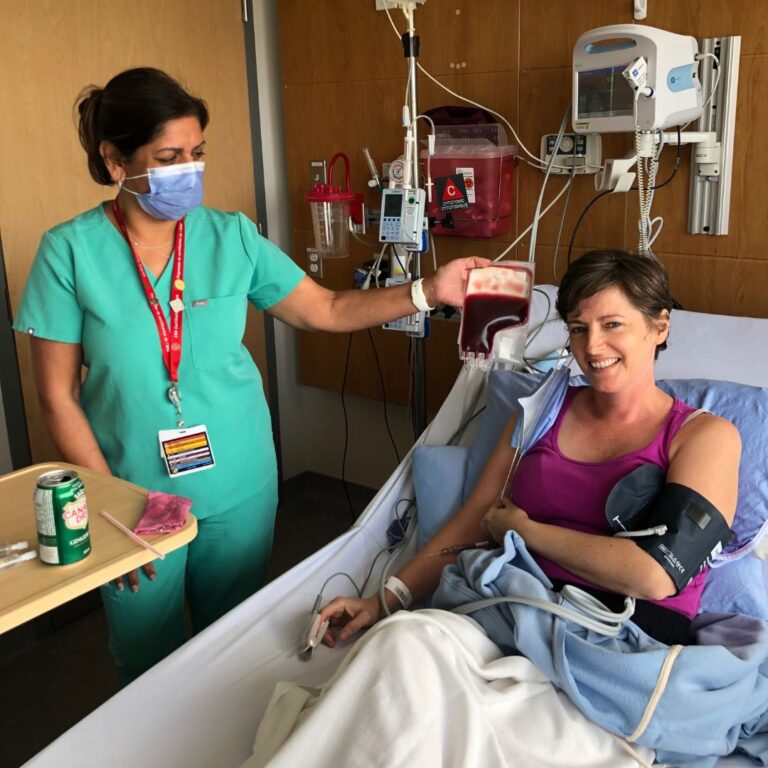Penny Wise – VP at 3M, shares the secret to empathetic leadership and getting women into STEM
Penny Wise has had a truly distinguished career. From taking on the role of President of 3M Canada to returning to the U.S. to lead the organization’s global public policy and communications effort—and tirelessly advocating for women every step of the way—she is a force in the business community.
She joined us at The Honest Talk to discuss women in leadership, how empathy can create a better workforce and the importance of inspiring more women and girls to join STEM.
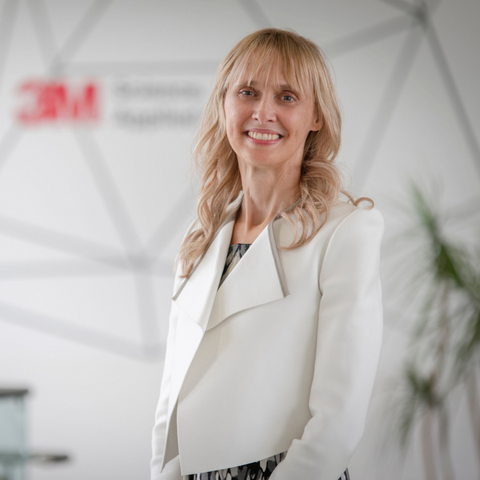
Jennifer Stewart: Congratulations on the award you just received! How does it feel to be recognized by your peers for your work in the business community?
Penny Wise: It was an incredible honour to be recognized by the Canadian Chamber of Commerce and to win the Canadian Business Leader of the Year award. It is an honour to be included with people like Susannah Pierce and Heather Chalmers, women I have worked with and admired in the Canadian business community. It makes you feel very proud to be Canadian and proud of the work, efforts, commitments, and challenges you’ve overcome in your career to get that kind of recognition.
Catherine Clark: Penny, one thing we loved is on your Twitter profile; the words that you use to describe yourself are Industrial Marketing at 3M, Mother, Wife, Shoe Collector, Fashionista, Retail Therapy, Pilates Enthusiast, and Canadian. We found it super refreshing that you’re willing to describe yourself in terms that many women in powerful roles are encouraged to shy away from. Can you talk to us about why it’s important to show others that you’re more than just Penny Wise, the professional?
Penny Wise: We talk a lot about authentic leadership and how authentic leaders are the ones who really shine, who are able to encourage others, who are able to lift others up, support, and create success. But I also believe that it’s really important that people know who I am and what I’m about and that I am authentic because it’s really tiring to be anything but authentic.
I need people to know that there’s more to my life than work and that I take care of myself. I don’t always practice the best work-life balance, but I try really hard. And I think it’s really important for all leaders, not just women, to show that they practice work-life balance; that there’s more to them than just what they do in the office every day. That makes us more relatable, makes us more connected, and makes us better people to work with.
Jennifer Stewart: I think we didn’t share our external hobbies, interests, and passions because, as women, we worry that they will make us vulnerable.
Do you think we still suffer that kind of stigma in the workplace? And how do we continue to combat it?
Penny Wise: I don’t think it’s nearly as bad as it was a decade ago or a generation ago. I do think there’s more place for it. The pandemic also shifted the mindset about leadership and this need to be an empathetic leader. I’ve always considered myself an empathetic leader; I was an empathetic leader long before it was fashionable. I think it’s about listening. It’s about understanding and meeting people where they are and providing them with the support they need to do their jobs.
We also discovered during the pandemic that people can do their very best work by not always being in the office. I think that’s also given us the opportunity to be more authentic and show up for meetings in different ways than we might have in the past.
Jennifer Stewart: Have we taken a step back as women since the pandemic that we now have the expectation that we’re looking after our children, in some cases, we’re working, we’re doing the domestic duties … we glorify the pandemic a little bit in terms of work-life balance, but have we also lost something in terms of supporting women?
Penny Wise: I think it’s an interesting way that you’re framing the question because as we moved into the pandemic, at the time, I was the Canadian Chamber of Commerce Council for Women’s Advocacy co-chair. At the pre-pandemic time, that committee and council focused on getting more women in the boardroom and in more senior leadership roles. But as we moved into the pandemic and we saw the economy closing down, all sorts of statistics and data points showed that women were being more affected than men.
The more affected sectors were those where women were over-indexed, like the service economy. Women were staying home to look after children because daycares were closed, or they were caregivers to adult parents, or they were teaching, or they were keeping the household going. And then there were also headlines about how women had slid back a few decades in terms of advancing women in the workplace. I remember being horrified by that.
That was when the Chamber of Commerce’s Council for Women’s Advocacy started to focus on activities that needed to happen in the near term to help women ensure that we hadn’t stepped back when the pandemic was over.
I do think companies still need to be flexible, but I don’t think we’ve slipped back.
I think we’ve just shifted how culture works and how we think about things.
Catherine Clark: You’ve been a huge proponent of STEM, particularly for women in diverse communities. Some of that stemmed from an early experience you had with a math teacher. Can you talk to us about what happened?
Penny Wise: In grade four, I had an elementary school teacher who absolutely convinced me that I was terrible at math, and I was absolutely humiliated. I was so upset by the experience that I just hated math and wanted nothing to do with it. And so, for the rest of my elementary school career and for the majority of my high school career, I did enough math to get by so that I still had good grades, but I hated the class, and I felt no joy.
I was determined to attend university, get a history degree, and study law. In grade 13, I went to school in Ontario, and I was taking what I thought was my last math class ever. For whatever reason, the teacher that I had just connected with me. And I just did really well; I understood it.
When I went to university, calculus fit into my schedule, and I took it as an added credit just for fun. It turned out to be my best course. My professor at the time said, “You know, you should really consider switching to a math degree, and then you could go to business school.” I just felt this burden lifted from me. I realized this is what I really want to do and who I am. And so that set me on the path to finishing up a math degree, and now here I am, a business leader, many years later.
Jennifer Stewart: How do we communicate with girls to negate those negative experiences? How do we find different intersections in that girl’s life to talk to her about STEM and reframe her thinking?
Penny Wise: What’s really interesting about when I tell my story is the number of women with their own STEM story, which I find incredibly heartbreaking. That was my impetus for looking at how we ensure that women want to take up STEM. Right now in Canada, women make up about 50 per cent of the population, but only 23 per cent of the STEM jobs are filled by women and around five per cent of skilled trades jobs. So it is really important to get more women and underrepresented communities in STEM.
We did a lot of work at 3M through an advocacy council to understand the barriers women and underrepresented communities face and how to remove those barriers. We discovered that the barriers that women face are things like STEM education being quite expensive, taking a lot more time than a standard degree, and women not necessarily knowing or understanding the different kinds of jobs that they can have when they get a STEM degree.
There’s this really important role for us to help young women understand what opportunities exist. We have to not just be a mentor or a supporter but also help lift young women up, help give them opportunities, and help expose them to other leaders, other opportunities, other jobs, and other places where they can engage for them to see themselves. And then I think it’s really beholden to us as parents to make sure that we don’t let our daughters shortchange themselves. If somebody says they’re not good at something, I don’t necessarily believe that. They might need more support, more time, or encouragement, but based on my STEM story, you can do whatever you want. You have to believe it, and you need that support network to help you believe it.
(Note: This transcript has been edited for length and clarity.)


